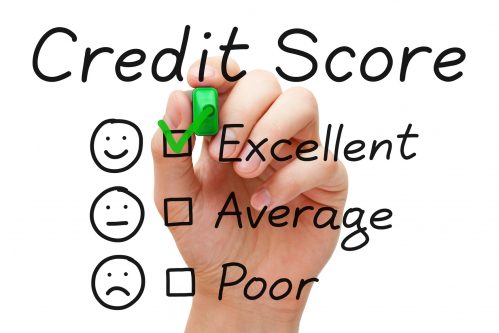
Getting ready to buy a home this spring? Make sure there aren’t any cracks in your credit. A good credit score is essential when it comes to securing a mortgage.
“If (your score is) below 600, you’re probably not going to buy a home in the short term,” says Mike Sullivan, director of education at nonprofit credit and debt counseling agency Take Charge America.
Given the slew of stringent regulation introduced following the housing crisis, most lenders simply won’t risk extending this demographic credit. In fact, even consumers with good scores should polish up the ol’ credit report.
Qualifying for the best mortgage rates starts at a 740 credit score. Scores below that threshold will likely have higher interest on their home loans.
So if you plan on hitting up the housing market this April, make sure to pull a copy of your credit report and check to see where your score stands.
Check Your Status
Under the Credit Card Accountability Responsibility and Disclosure Act of 2009, or Credit CARD Act, everyone is entitled to one free credit report from each credit bureau every year.
Obtain a copy of this report from AnnualCreditReport.com. It won’t come with your score—you can purchase that for a nominal fee. But there also are websites that offer free versions of your score year-round.
A recent version of your credit report will show you where you stand in terms of creditworthiness. The report should also spell out what you need to do to improve your score.
“You don’t have to entirely guess,” Sullivan says. “You simply look at what (the score) takes into account and you deal with those issues.”
Get Current
You’ll definitely want to address any delinquent accounts on your record.
“If you are behind, you want to bring those up to date as soon as possible,” says Kathryn Moore, a certified consumer credit counselor with GreenPath Debt Solutions. Delinquent accounts are a huge red flag to mortgage lenders because they demonstrate a lack of ability to repay debts.
They’re also the quickest way to tank your credit score. A missed payment—particularly following an extended period of good credit behavior—can cause a drop of 70 to 90 points.
Sadly, you won’t immediately recoup all those points once the account is reported as up to date.
Instead, “you need to be patient and make all of your payments on time and slowly build your score up” again, says Stephen Brobeck, executive director of the Consumer Federation of America.
The role that time plays in building stellar credit is why it’s ideally “a good idea to look at your credit at least a year out” of shopping for a mortgage, says Bruce McClary, a spokesman for the National Foundation for Credit Counseling.
Getting a Quick Boost
If you are behind this timeline, there are a few steps you can take to potentially give your score a quick boost.
For starters, scan your credit report for accuracy. An error—such as an old, bad debt; incorrect account balance; or worse yet, a phantom foreclosure—could be needlessly weighing down your score. Have these errors corrected by contacting the credit bureau in question.
“There’s a link (on your credit report) to dispute any inaccurate information,” Moore says. “The credit bureau from there will have to resolve that dispute within 30 days.” Once a negative error is removed, your score should improve.
You can also engineer a quick boost by paying down existing debts, particularly high credit card balances. This move improves your credit utilization rate—essentially how much debt you are carrying versus how much credit has been extended to you — and should bolster your score.
Experts generally say to keep your credit utilization below 20 to 30 percent of your collective credit. However, “you really want to get that ratio down to rock bottom if you’re looking for a house,” McClary says.
Clearing out existing balances will also improve your debt-to-income ratio, which a “lender looks at” closely during their mortgage decision process, Moore says.
Lenders typically say the “back-end” debt-to-income ratio—or the amount of your income that is needed to cover all your monthly debt obligations, including credit card bills and other loans—should be 36 percent or lower.
Finally, if you recently missed a loan payment because you, say, didn’t know about the bill, try calling up the issuer (or lender) to see if they will refrain from letting the credit bureaus know about your faux pas.
What to Avoid
Once you have your score in the upper echelon, make sure it stays there. Avoid running up your credit card balances again, which will help keep your credit utilization in check.
Also avoid applying for other loans, including store credit cards, particularly in an attempt to improve this aforementioned credit utilization rate. Applying for new credit generates hard inquiries on your credit report, which could ding your score.
And “if those inquiries don’t necessarily show up as approved accounts, that sends up a red flag” to lenders because it could look like you were turned down for a credit line, McClary says.
Not to mention that you’re more likely to miss a payment when you have multiple cards at your disposal, Brobeck says.
Conversely, don’t close any accounts while you are looking for a mortgage, as the closure could send your credit utilization skyrocketing in the wrong direction.
Source: RisMedia/Bankrate.com

 Facebook
Facebook
 X
X
 Pinterest
Pinterest
 Copy Link
Copy Link








